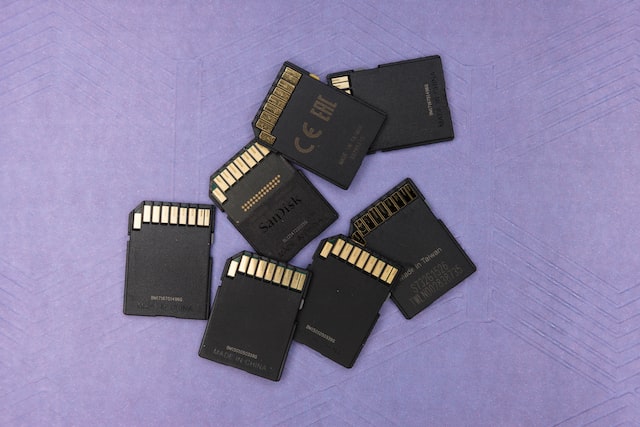What is a physical data room?
A data room is a secure space for storing confidential documents, typically for large, legally binding business transactions. A data room is used not only for storing sensitive documents but also for secure file sharing, reviewing, and auditing.
A physical data room is usually set up as a separate room in the audited companies’ offices and requires third parties (auditors, attorneys, regulators, potential buyers, etc.) to visit the location to access files physically. A physical data room, often referred to as a due diligence data room, is monitored 24/7 but only allows access to authorized persons during specific time windows.
What is a virtual data room?
A virtual data room serves the same function as a physical data room — to facilitate a secure due diligence process. However, it is an online, cloud-based solution accessible from anywhere as long as one has been granted access to the platform and has an internet connection.
Virtual data rooms have far more advantages than physical data rooms, including multiple automated functions for improving work efficiency, various security protocols, better accessibility, options for user activity tracking, and ultimately lower costs.
Physical data rooms vs virtual data rooms
Given the broad spectrum of advantages, virtual data rooms have quickly taken over the traditional physical data room.
Since most businesses are shifting towards digitalization, virtual data rooms have been the obvious choice for storing data, facilitating remote work, and international collaborations while increasing security and efficiency. In the digital age, security concerns have increased significantly for many companies.
Data breaches, cyber-attacks, malicious insiders, and miscellaneous incidents have been on the rise, but virtual data room providers are not falling behind. More and more providers are designing sophisticated, secure, and reliable VDR platforms to keep client data safe.
Top advantages of a virtual data room include:
- Lower costs. A VDR can be set up in minutes — as long as you have digitized your files beforehand. With a physical data room, you either need to rent space or devote part of your office to the data repository. That means extra expenses for maintenance, security, and file organization. Physically organizing files can be very time-consuming. Depending on the size of the company, employees could spend months putting files in order, becoming less efficient with their daily tasks. Hiring an outside service for setting up a data room also increases costs.
- Flexibility and accessibility. An online data room allows designated users to access files from anywhere, at any time, eliminating the need to travel to review the documents. For data repository owners, it also means more flexibility, as there is no need to schedule data room visiting times for each party. For example, the VDR owner can simultaneously communicate with multiple investors globally.
- Benefits of automated features. With functions like keyword search, bulk upload, labels, digital watermarking, restricting print, forward, view to certain users, etc., due diligence can be less dreadful and time-consuming. For example, in a virtual deal room, finding a file among thousands takes a matter of seconds rather than hours. Having digitized documents also makes editing, co-creating, and reviewing much quicker.
- Document safety and preservation. An electronic data room lowers the chance of human error and incorporates many layers for data security like encryption, two-factor authentication, security standard compliance, fence view, and many more. It also ensures document preservation through data digitization and storage on a cloud service. Since the data is not stored on a single device or in physical format, it is far better protected against data loss.
- Access control and customization. An appreciated benefit of using a virtual data room is the ability to control and customize user access. A VDR allows the administrator to set permission-based access so that only the designated employees or outside users can access certain files.
For example, what might be accessible to your legal team, might not be available to other employees. When sharing a file, the administrator can set access deadlines and restrict certain functions (prohibit print, download, forward, for example). The administrator can also set up remote shred by revoking access to files after a deadline has passed — even to downloaded files. - Easier progress and user tracking. Each user and every file within a data room leaves behind an audit trail accessible to the administrator. This way, you can easily assess the interest of potential investors, check employee progress, delegate tasks, and detect bottlenecks. Reports can also be automatically generated, for example, to present during board meetings.
- Better communication. Last but not least, the digital data room improves and documents communication. You can ask clarifying questions, delegate tasks, or go through details with your clients or auditors on the platform. This way, you can minimize the need for additional meetings and track progress while keeping every conversation confidential.
Who uses virtual data rooms?
Physical data rooms were originally used for sophisticated business transactions and due diligence, but now almost any organization can benefit from using a digital data room for their business. The reason for introducing a data room in business operations, of course, varies depending on the industry. We offer some use cases of how a virtual data room can advance business operations in different business sectors.
- Mergers and acquisitions. Using virtual data rooms for mergers and acquisitions speeds up due diligence and securely stores all legal, financial, HR, and other documents in a central place accessible from any location across the globe. This allows you to reach more potential buyers or talk to multiple prospects simultaneously.
- Due diligence. Performing due diligence with a digital data room is both cost- and time-effective. Automated functions help sort, find, and review documents more quickly. Communication with auditors is easier and faster as well.
- Corporate repository. Using a digital data room as a central virtual platform for daily corporate tasks as well as sensitive data storage can increase business transparency, order, as well as communication among team members. Additionally, with a virtual data room, you can set access permissions to eliminate the risk of sensitive employee information leakages, such as personal files, salaries, etc.
- IPO. For the IPO process, an online data room can help efficiently and simultaneously share large volumes of documentation with potential buyers, thus increasing profitability.
- Fundraising. A virtual data room is a great tool for centralizing fundraising efforts and ensuring transparent, timely, and comprehensive communication with potential donors. You can provide access to all necessary information such as organizations’ assets, strategy, and financials to multiple donors regardless of their location.
- Banking. In banking, it is critical to assess your business partners as well as borrowers carefully. Therefore, scrutinized due diligence of sensitive data is of high importance to make the best decision. A digital data room can provide a secure space to facilitate the process.
- Litigation. A safe and confidential space for effective communication between a client and a law firm is a must. On a VDR platform, both parties can view, update, sign documents virtually, as well as ask questions, add files, etc.
- Real estate. Real estate managers typically deal with storing and sharing heavy files such as architectural drawings, building plans, video tours, inspection reports, etc. Keeping legal documents safe (contracts, insurance, mortgage documents) is a daily concern as well. Digital data rooms can assist with both.
- Clinical research. For clinical research, a secure virtual data room can protect confidential patient information, patent documentation, as well as effectively share and communicate with research partners globally.
Virtual data room services market
The global virtual data room market is growing exponentially. The Global Forecast of 2025 projects the VDR market size to grow from 1.4 billion USD in 2020 to 2.7 billion USD by 2025. Increasing digitalization and transitioning to cloud technologies, as well as the latest surge of remote work due to the COVID-19 pandemic has greatly impacted the growth of the virtual data room market.
Another major trend driving the virtual data room market is the growing understanding of data value in business success. Now more than ever, businesses are paying attention to what kind of data they are generating and how best to use it to their advantage.
However, with such rapid growth and with a shift towards new client needs comes an increase in unresolved and unexpected risk. Therefore, the leading VDR providers guarantee top security by complying with international data security standards. Top providers of VDR software are continuously expanding their products and services. Some of the most valued vendors include Citrix, iDeals Solutions, Firmex, and Intralinks.



